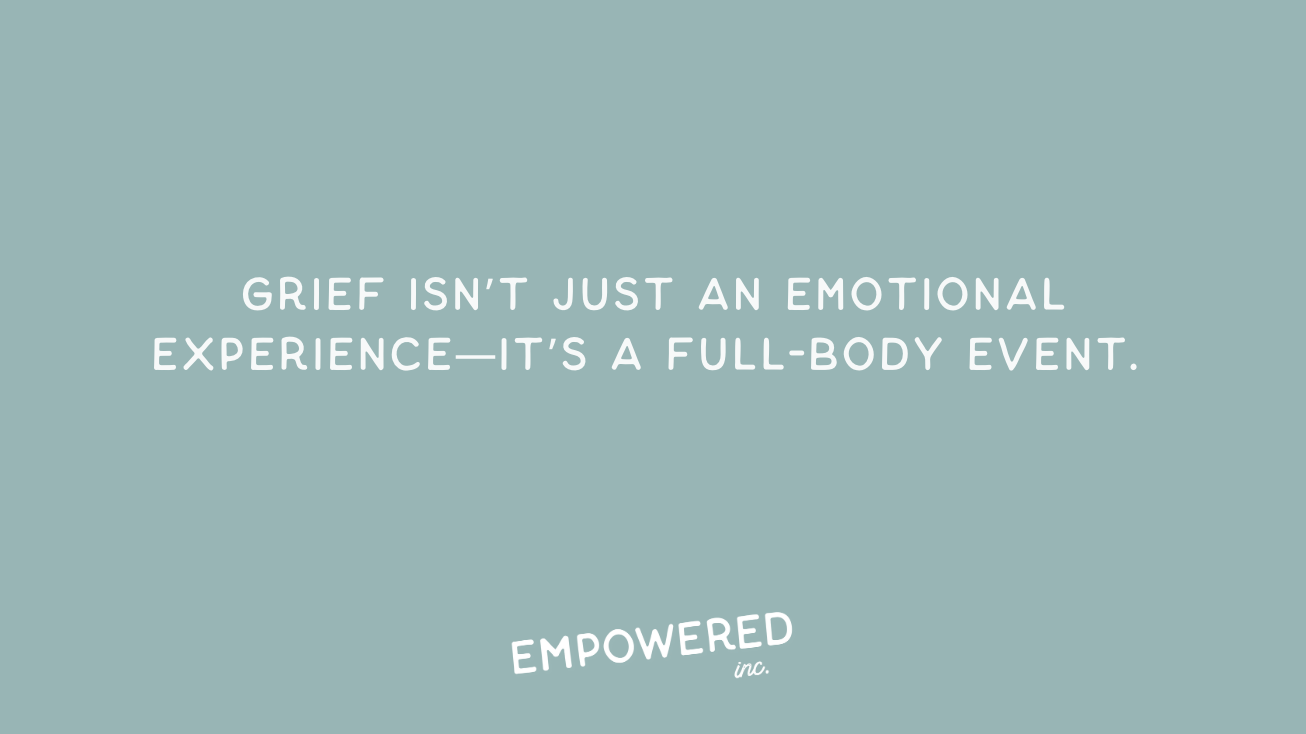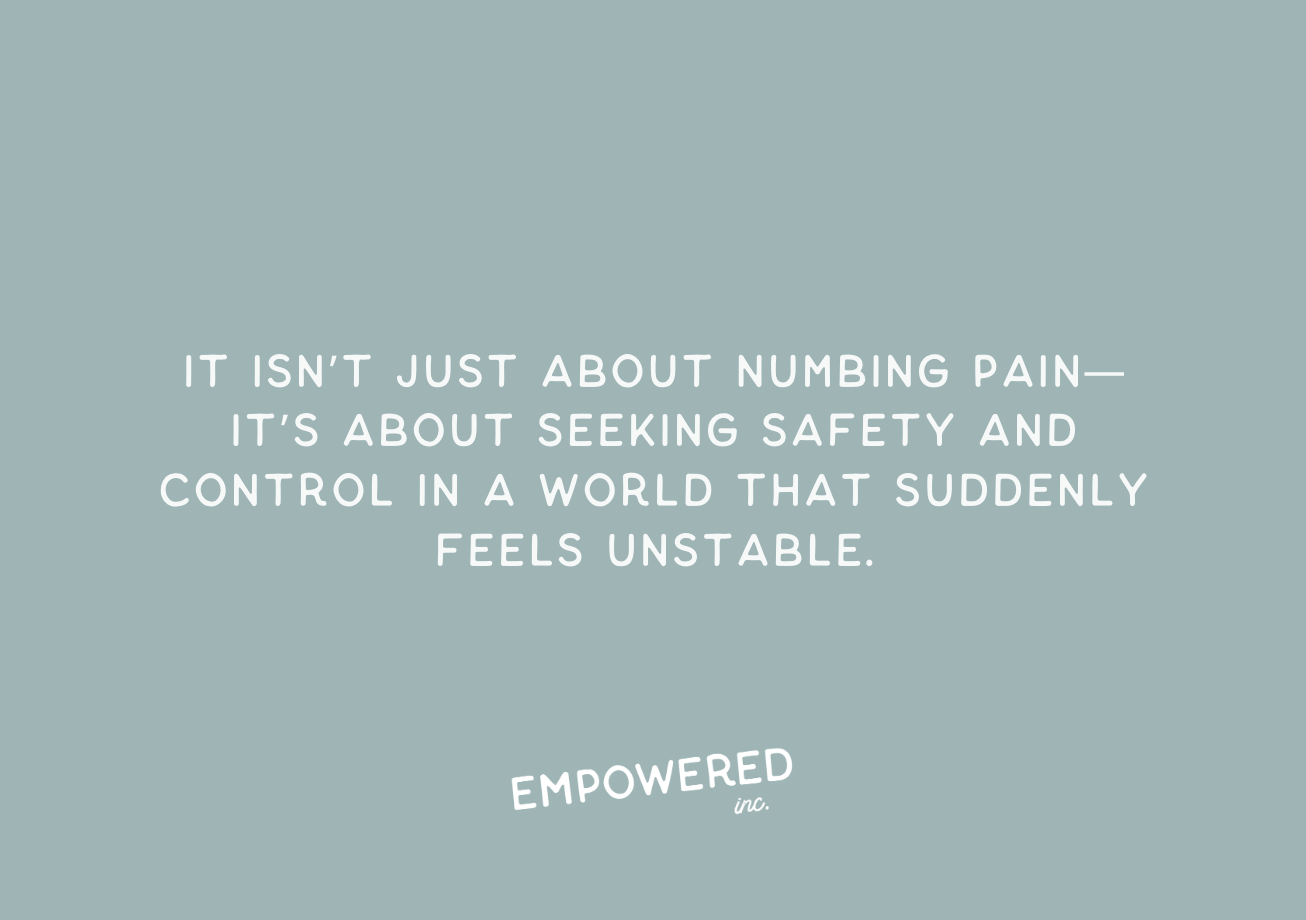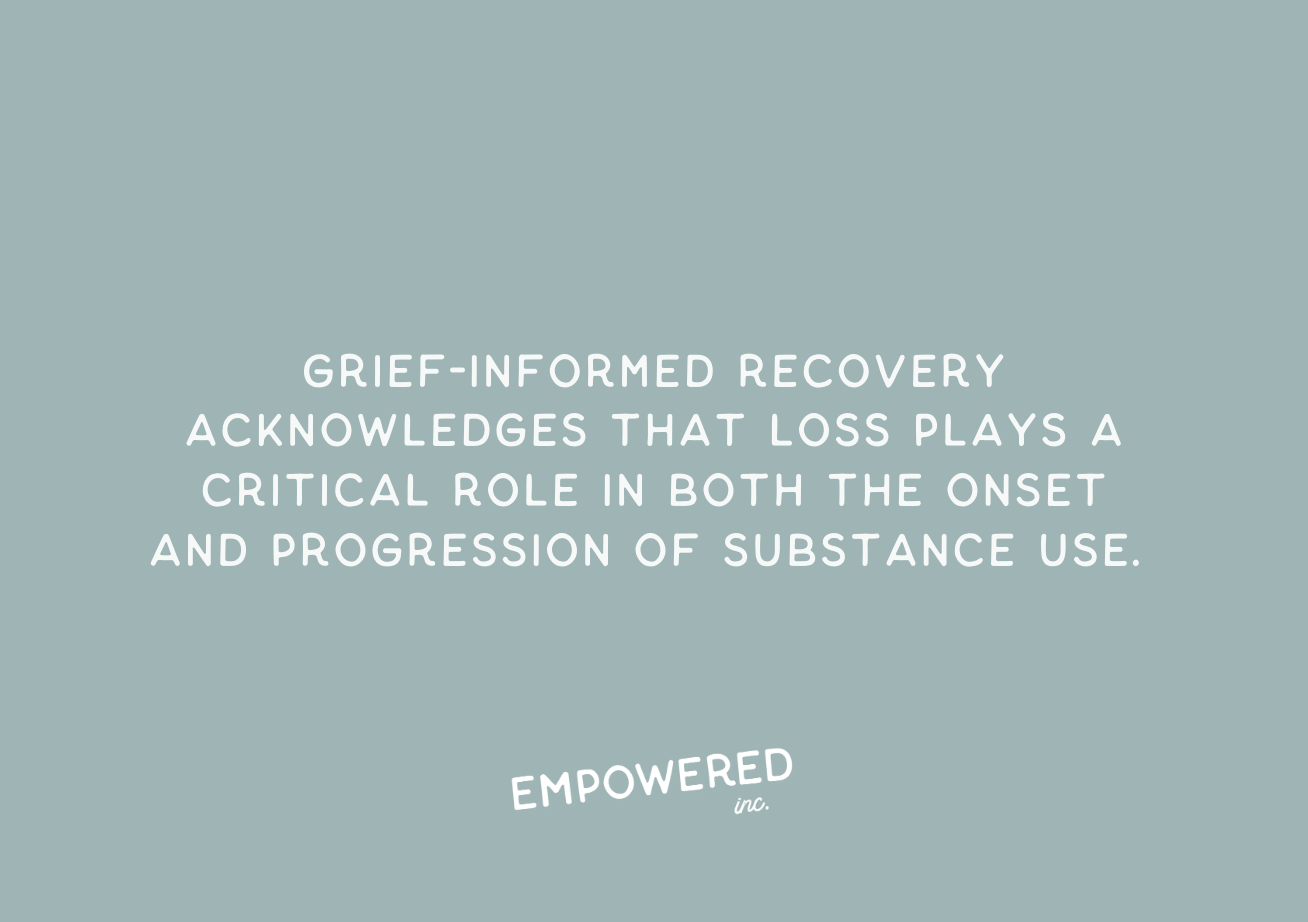Understanding the Link Between Grief and Substance Use Disorder
May 07, 2025
Why grief can lead to substance use and how to get help.
Grief is a complex, deeply personal experience—it changes people.
In the wake of loss, many reach for anything that offers a moment’s peace, and too often, those coping mechanisms come with consequences that quietly unravel lives.
One of the most overlooked outcomes of unresolved grief is the pull toward substance use disorder.
Whether it’s a glass of wine to dull the ache of loneliness or prescription medication to escape intrusive memories, the connection between grief and addiction is real, powerful, and often misunderstood.
In this article, we’re pulling back the curtain on how grief fuels substance use, the signs no one talks about, and resources to help break the cycle.
What Is the Connection Between Grief and Substance Use Disorder?
Grief isn’t just sadness—it's complex and can shake a person’s identity, sense of safety, and ability to cope with everyday life.
Merriam-Webster defines grief as “deep and poignant distress caused by or as if by bereavement,” but anyone who’s lived it knows it’s far messier than a dictionary entry.
Grief can show up as anger, numbness, exhaustion, anxiety, or an unbearable ache that words can’t describe. It looks different in everyone and is often misunderstood, both by those grieving and the people trying to support them.
Substance Use Disorder is a medical condition marked by the compulsive use of a substance despite harmful consequences. According to Johns Hopkins Medicine, it involves using drugs, alcohol, or other substances to manage or escape emotional pain. When someone is grieving, the craving for relief can be overwhelming. In those moments, substances often feel like the quickest way to numb the ache, dull the loneliness, or quiet the memories that won’t stop resurfacing.
The connection between grief and substance use isn’t incidental—it’s intertwined. Many people turn to substances as a way to self-medicate overwhelming grief, especially when they don’t have access to healthy coping strategies or professional support. And while it may offer temporary relief, it can quickly spiral into dependency.
But why does grief have this kind of power over our coping mechanisms?
To answer that, we need to look at the influence of grief physically and emotionally—and how that makes individuals more vulnerable to addiction.
Why Grief Can Increase the Risk of Addiction
Grief isn’t just an emotional experience—it’s a full-body event.
When we lose someone or something meaningful, it triggers a cascade of physical, psychological, and emotional responses. Increased cortisol levels, disrupted sleep, immune suppression, anxiety, and depression are all part of the body’s natural stress response to loss. Left unprocessed, these symptoms can leave people emotionally vulnerable and physically depleted, searching for relief anywhere they can find it.
This is where the risk of addiction quietly takes hold.
According to the National Institute on Drug Abuse, traumatic experiences — including loss, violence, abuse, and family conflict—are closely tied to both substance use and the development of substance use disorders. For someone in the depths of grief, substances like alcohol, opioids, or sedatives can temporarily dull the ache, soften intrusive memories, or create a fleeting sense of calm. It isn’t just about numbing pain—it’s about seeking safety and control in a world that suddenly feels unstable.
It’s important to note that addiction isn’t born out of “weakness.” It’s often rooted in an instinctive, desperate attempt to “survive” what feels like unbearable emotions.
While each substance interacts differently with the body and mind, what unites them is their ability to momentarily quiet grief’s relentless noise. Why a person gravitates toward one substance over another isn’t fully understood, though factors like accessibility, social influences, and personal history play a role.
If you’re curious about how specific substances impact the body and why they become coping mechanisms in grief, check out this excellent Comprehensive Guide of Substance Specific Information from Partnership to End Addiction.
Understanding the connection between grief and substance use isn’t just informative—it’s life-saving. By addressing both grief and substance use together, we create a path to healing that treats the heartache, not just the habit.
Supporting Others Struggling with Grief and Addiction
Grief and substance use disorder don’t exist in isolation—and supporting someone through both requires more than good intentions.
Personally and professionally, the most powerful starting point is understanding. Addiction is often rooted in a desperate search for belonging, safety, and relief from emotional pain. When we lead with empathy instead of judgment, we create the safety people need to open up, feel seen, and start healing.
But seeking to understand isn’t passive.
It means listening without rushing to fix, holding space without minimizing, and knowing your own limits. It’s equally vital to recognize when professional intervention (or further professional intervention) is needed. If you find yourself feeling overwhelmed, anxious, irritable, or struggling to set boundaries, it’s a clear sign it’s time to reach out for additional support—for both you and the person you care about.
You’re not alone in this. Trusted resources like Partnership to End Addiction, National Institute on Drug Abuse, and Substance Abuse and Mental Health Services Administration offer guidance, treatment referrals, and tools to navigate these complicated situations with skill and heart. See more available resources later in this article.
Grief-Informed Addiction Recovery: What You Need to Know
Grief doesn’t disappear the moment someone begins recovery — in fact, it often becomes louder.
Loss can be a powerful trigger for relapse, and unaddressed grief can sabotage even the strongest recovery efforts. When grief is ignored in addiction treatment, individuals may find themselves stuck in cycles of emotional avoidance, making it harder to sustain sobriety or fully engage in the healing process.
Grief-informed recovery acknowledges that loss plays a critical role in both the onset and progression of substance use. Whether someone is grieving the death of a loved one, the loss of a relationship, or even the loss of a former identity, these emotions can profoundly affect mental health and recovery outcomes. Integrating grief support into addiction treatment is essential for long-term success.
That’s why pairing grief support with substance use treatment offers people a strong foundation for healing. Professional grief support provides a safe space to process loss, learn sustainable coping skills, and reduce the emotional hurt that often leads to self-medication.
Where to Find Help for Grief and Substance Use Disorder
If you or someone you care about is navigating grief alongside addiction, there are a number of organizations that offer resources for the griever and professionals. These trusted services can be the lifeline someone needs to begin moving forward — fully seen, fully supported.
United States National Hotlines & Resources
Substance Use Disorder & Grief Support
- The Association for Addiction Professionals (NAADAC): #1-703-741-7686; https://www.naadac.org/
- National Board for Certified Counsellors (NBCC): #336-547-0607; https://nbcc.org/
- SAMHSA’s National Helpline: #1-800-662-HELP (4357); https://www.samhsa.gov/find-help/helplines/national-helpline
Free, confidential, 24/7 treatment referral and information service for individuals and families facing mental and/or substance use disorders.
- Partnership to End Addiction Helpline: https://drugfree.org
Support for parents and caregivers concerned about a loved one’s substance use.
- National Alcoholics Anonymous: https://www.aa.org/
A.A. has a simple program that works. It’s based on one alcoholic helping another.
- Narcotics Anonymous: https://na.org/
Any addict can stop using drugs, lose the desire to use, and find a new way to live. Our message is hope and the promise is freedom.
- National Harm Reduction Coalition: https://harmreduction.org
Resources, overdose prevention, and safer substance use education.
- National Alliance for Children's Grief: https://childrengrieve.org
Resources, education, and peer support programs for grieving children and their families.
- Dougy Center (Grief Support for Children, Teens, and Families): https://www.dougy.org
Canada National Hotlines & Resources
Substance Use Disorder & Grief Support
- Canadian Counselling and Psychotherapy Association: https://www.ccpa-accp.ca/
- Canadian Addiction Counsellors Certification Federation: #1-866-624-1911; https://www.caccf.ca/
- Talk Suicide Canada (Mental health & substance crisis line): #1-833-456-4566 or Text 45645; https://talksuicide.ca
- Canadian Centre on Substance Use and Addiction (CCSA): https://www.ccsa.ca
- Canadian Virtual Hospice — MyGrief.ca: https://www.mygrief.ca
Free, evidence-informed grief education and coping resources for Canadians.
Conclusion
Grief changes us, and when left unacknowledged, it can quietly lead people toward coping strategies that create even deeper wounds. Understanding the connection between grief and substance use disorder isn’t just about awareness; it’s about creating space for compassion, conversation, and comprehensive care.
If you or someone you know is navigating the heavy intersection of loss and addiction, know this: help is available, healing is possible, and you don’t have to carry it alone. By addressing both the ache of grief and the pull of addiction together, we open the door to healing.
Empowered Inc. is committed to supporting therapeutic professionals in navigating these complex intersections through heart-centered, evidence-informed education. Stay tuned for upcoming courses and resources on substance use disorder by subscribing to our newsletter.
Empowering Updates
Subscribe to get the BEST Empowered updates delivered to your inbox:
We don't like spam either. You can unsubscribe at any time.





